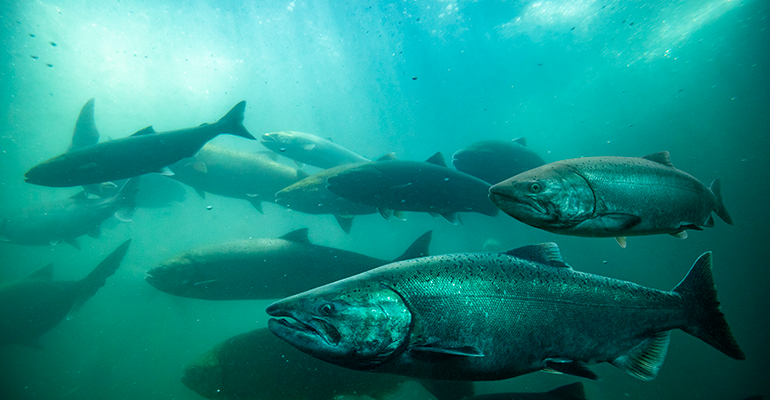News
Forever chemicals in freshwater US fish cause concern
6 Feb 2023
Freshwater fish in the US contain high levels of harmful “forever chemicals”, according to a US study – although levels are lower in commercially sold fish.
Describing the test results as “breathtaking”, the Environmental Working Group (EWG) reiterated calls for stricter regulation of the main chemicals PFOS and per- and polyfluoroalkyl substances (PFAS). These are nicknamed forever chemicals because they do not degrade.

In addition, the EWG recommended more tests be carried out on food, since diet is thought to be a major source of PFAS exposure for Americans.
“PFAS contaminate fish across the US, with higher levels in the Great Lakes and fish caught in urban areas,” said Tasha Stoiber, an EWG senior scientist and co-author. “Identifying sources of PFAS exposure is an urgent public health priority,” she added.
PFAs content in freshwater and commercially caught fish
The findings reinforce previous research that links fish and foods such as eggs, liver and even fruit as main food sources of these chemicals.
The testing data, from the Environmental Protection Agency (EPA) and Food and Drug Administration (FDA), showed that consuming a single meal of freshwater fish could lead to similar PFAS exposure as ingesting store-bought fish every day for a year.
“People who consume freshwater fish, especially those who catch and eat fish regularly, are at risk of alarming levels of PFAS in their bodies,” commented David Andrews, EWG senior scientist and one of the study’s lead authors.
 © iStock/DaveAlan
© iStock/DaveAlan
The EWG said that median amounts of PFAS in freshwater fish were 280 times greater than forever chemicals detected in some commercially caught and sold fish.
‘PFA exposure is low for consumers of market basket fish and shellfish’
To put that into context, a 2020 study looking into PFA substances in fish and shellfish bought in grocery stores and fish markets concluded that PFAS were present at low or non-detect levels in the US commercial seafood supply.
Results from the 70 samples of finfish and shellfish found up to ten PFAS were detected in 21 samples, with PFOS the predominant compound.
There were no detections in the remaining 49 samples, with detection limits of approximately 0.4–0.5 parts per billion (ppb). Total PFAS concentrations in most samples were single digit or sub-ppb levels.
The exception was commercial finfish from the Great Lakes area, for which higher levels (up to 22 ppb) were observed in whitefish, walleye, and yellow perch fillet.
“The study findings suggest PFAS is present at low or non-detect levels in the U.S. commercial seafood supply and exposure is low for consumers of market basket fish and shellfish,” the research team concluded.
 © iStock/RnDmS
© iStock/RnDmS
In the US, monitoring levels of these forever chemicals in food has been the responsibility of the FDA, which has been testing for PFAS in food since 2019.
Its Total Diet Study (TDS), which includes fish from supermarkets, has found PFAS in fish sticks, canned tuna, tilapia, cod, and shrimp.
The food agency stated: “Based on the best available current science, the FDA has no scientific evidence that the levels of PFAS found in the TDS samples tested to date indicate a need to avoid any particular food.”
The focus is on PFAs in food packaging
In recent years, the food industry has focused efforts to reduce PFAs, not in food but in its packaging, where its close contact to the edible product has raised health concerns among consumers alike.
Restaurant Brands International (RBI), which owns Burger King, Popeyes, and Tim Hortons said in March 2022 that it would ban added PFAS in food packaging globally by 2025.
In the same month Starbucks also stated it would eliminate PFAS in its food packaging materials in the US by the end of 2022 and internationally by the end of 2023.
In late 2020, Whole Foods Market set out its position even earlier in 2020 with the announcement that it would restrict intentionally added PFAS in all food service and exclusive brand packaging
The US multinational supermarket chain also said it had already discontinued or reformulated food service packaging containing intentionally added PFAS.
Moves by the industry is accompanied by regulatory action as California, Maine, Connecticut, New York, Vermont, Minnesota and Washington are echoing Denmark’s lead in banning PFAS present in food packaging.
